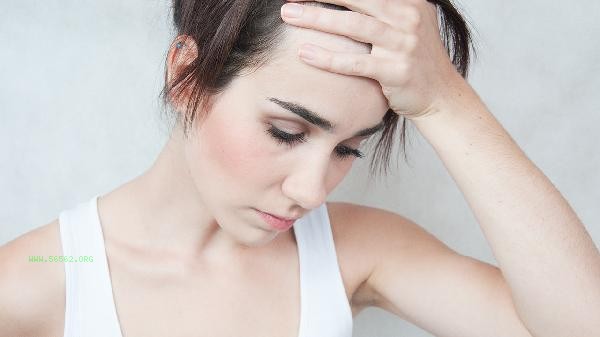To treat menopausal depression, medication such as paroxetine, sertraline, fluoxetine, venlafaxine, and metronidazole can be used according to medical advice. Menopausal depression may be related to changes in hormone levels, psychological stress, genetic factors, social environment, chronic diseases, and other factors. It usually manifests as symptoms such as low mood, decreased interest, sleep disorders, changes in appetite, and decreased attention. Paroxetine is a selective serotonin reuptake inhibitor suitable for patients with menopausal depression accompanied by anxiety symptoms. This drug can regulate the balance of neurotransmitters in the brain, improve emotional fluctuations and sleep problems. During use, adverse reactions such as dry mouth and dizziness may occur, and regular monitoring of liver and kidney function is necessary. Patients with combined cardiovascular diseases need to assess their risk before medication.

2. Shequlin
Shequlin has a relieving effect on physical symptoms such as headache and fatigue associated with menopausal depression. Its drug interactions are minimal, making it suitable for patients who take antidepressants for a long time. Common side effects include gastrointestinal discomfort and sexual dysfunction. It is recommended to take it after meals to reduce irritation. During medication, alcohol consumption should be avoided.
III. Fluoxetine
Fluoxetine can improve the mood and fatigue of menopausal depression patients, and its effect is relatively fast. The drug has a long half-life and is less likely to cause withdrawal symptoms when missed. Attention should be paid to the possibility of exacerbating anxiety symptoms in some patients, and it is recommended to start with low doses for initial medication. There are compatibility taboos with monoamine oxidase inhibitors.
4. Venlafaxine
Venlafaxine is a dual channel antidepressant that can improve vasomotor symptoms such as hot flashes and excessive sweating associated with menopausal depression. Dose adjustment needs to be carried out gradually, sudden discontinuation of medication may cause discomfort such as dizziness. Hypertensive patients should closely monitor changes in blood pressure when using it. Possible side effects such as decreased appetite may occur.

V. Mirtazapine
Mirtazapine is suitable for patients with menopausal depression accompanied by severe insomnia and weight loss, and has sedative and appetite enhancing effects. In the early stages of medication, there may be drowsiness, and it is recommended to take it at night. It is necessary to be alert to the risk of abnormal blood glucose metabolism, and blood glucose monitoring should be strengthened for diabetes patients during medication. Avoid using in combination with central nervous system inhibitors.
In addition to medication treatment, it is recommended that menopausal depression patients maintain a regular daily routine and engage in moderate aerobic exercise such as brisk walking, yoga, etc., which can help promote the secretion of endorphins. Diet can increase the intake of foods rich in tryptophan, such as millet and bananas, to assist in regulating emotions. Family members should provide sufficient emotional support and avoid excessive stimulation. When symptoms continue to worsen or suicidal tendencies occur, immediate medical attention should be sought. Regular follow-up visits are required to evaluate the efficacy and side effects of medication, and medication plans cannot be adjusted on one's own.





Comments (0)
Leave a Comment
No comments yet
Be the first to share your thoughts!